JAZZ FOUND NOT GUILTY
JAZZ FOUND NOT GUILTY
Norman Warwick hears evidence from Geoffrey Himes
Geoffrey Himes has written about pop music on a weekly basis in the Washington Post since 1977, and has been a contributing editor to No Depression magazine since 1998. He has also written about pop music for Rolling Stone, the Oxford American, Musician Magazine, National Public Radio, Crawdaddy, Fi Magazine, Request Magazine, Downbeat Magazine, Country Music Magazine, Jazz Times, Bluegrass Unlimited, New Country Magazine, Sing Out, the Chicago Tribune, the Atlanta Journal-Constitution, the Philadelphia Inquirer, the Baltimore Sun, Harley Davidson Magazine, the Unicorn Times, the Patuxent Newspapers and other outlets. He has been honored for Music Feature Writing by the Deems Taylor/ASCAP Awards and by the Music Journalism Awards.
Himes wrote two chapters for the book The Blackwell Guide to Recorded Country Music, and contributed entries to the The Encyclopedia of Country Music, The Music Hound Folk Album Guide and The Rolling Stone Jazz & Blues Album Guide. He has written liner notes for albums by the Isley Brothers, the Beach Boys, Ray Wylie Hubbard, Carey Bell, Tony Rice, Chris Hillman, Beau Jocque, Earl King and others. He is currently working on a book about Emmylou Harris, Rosanne Cash, Rodney Crowell and Ricky Skaggs for the Country Music Hall of Fame.
Himes has lived in Baltimore since 1974. His lyrics have been recorded by Billy Kemp & the Paradise Rockers, the Kinsey Report, Mojo Filter, Edge City and Pete Kennedy & Bound for Glory.

´They’re wrong´, Himes (left) answer politely but bluntly whenever he might be asked what he think of people who reckon jazz died when pop was born.
´Like in any other musical form´, he says, ´creativity and innovation waxes and wanes in the genre, moves from the margins to the centre and back again. But there’s never been a year without terrific new jazz albums being released, even if those records were released on tiny labels without much fanfare. Part of the problem is that jazz critics, publications and radio shows have become so segregated from their pop/rock equivalents that it’s hard for fans on one side of the divide to find out anything about the other. As a result, many music lovers are unaware that we’re in the midst of another golden era of jazz´.
The evidence Himes provides to support his claim is that of three recent albums that are as good as any recordings we’re likely to get in any genre this year: Charles Lloyd & The Marvels’ Tone Poem, the Vijay Iyer Trio’s Uneasy, and Joe Lovano & Dave Douglas’ Soundprints’ Other Worlds.
´This jazz renaissance has blossomed´, he believes, ´because most of the genre’s most gifted artists have rejected both the neo-liberal hyper-traditionalists and Bolshevik hyper-experimentalists. This has freed them to embrace both melody and dissonance, both history and innovation, both great chops and tremendous feeling. Call them the jazz progressives, seeking to build coalitions rather than divides, more eager to improve the average citizen’s standard of listening than to maintain musicological purity.
Gone is the snobbishness toward other genres, an attitude that has done much to isolate jazz from the popular music on which it once fed. Nor has that arrogance been replaced by pandering. This movement is not playing the instrumental R&B of Kamasi Washington, nor the instrumental pop of Chris Botti. These jazz progressives are taking the raw materials of the best popular music and transforming it through syncopation, reharmonization and improvisation into something as challenging as it is pleasurable.

The movement’s leading figure is Charles Lloyd (right) This 83-year-old tenor saxophonist has a long history that includes playing with Howlin’ Wolf in his native Memphis, hiring the little-known Keith Jarrett and Jack DeJohnette for his most famous quartet, releasing one of the best-selling jazz albums of the ‘60s, collaborating with The Beach Boys and Lucinda Williams, and resurrecting his career after a long absence via collaborations with Jason Moran, Brad Mehldau and more.
But that history has never become a weight on his shoulders. As a new documentary film about his pandemic retreat into the California mountains demonstrates, Lloyd cultivates what he calls “beginner’s mind.” Knowledge is valuable, he acknowledges, but it should never prevent one from approaching each composition, each performance with the curiosity and wonder of a child.
That movie, Love, Longing and Loss, directed by his wife Dorothy Darr, documents how he puts that philosophy into practice as he tries to develop new compositions on saxophone, flute, piano and tarogato (a Hungarian woodwind). We watch him tramping through the steep slopes of Santa Barbara above the Pacific and padding across the stone floors of his home, singing and playing melodies with a joyful seeking of surprise´.
The film, commissioned by Berlin’s Pierre Boulez Saal, was being streamed right up until June 11th, but Himes still has much to say.
´Lloyd’s emphasis on the sensuality and emotion of melody as the basis for improvisation and development has served him well during his long career. It enables the triumph of his latest studio recording. Tone Poem is his third album with The Marvels, the same band that supported his 2018 collaboration with Lucinda Williams, Vanished Garden´.
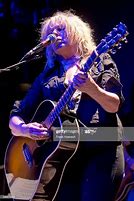
Lucinda Gayle William, left (born January 26, 1953) is a familiar figure to those of us who wander the sidetracks & detours of Americana music, miles away from the jazz fields. She is an American rock, folk and country music singer, songwriter and musician. She recorded her first albums in 1978 and 1980 in a traditional country and blues style and received very little attention from radio, the media, or the public. In 1988, she released her self-titled album Lucinda Williams. This release featured “Passionate Kisses”, a song later recorded by Mary Chapin Carpenter, which garnered Williams her first Grammy Award for Best Country Song in 1994. Known for working slowly, Williams recorded and released only one other album in the next several years, Sweet Old World, in 1992. Her commercial breakthrough came in 1998 with Car Wheels on a Gravel Road, an album presenting a broader scope of songs that fused rock, blues, country and Americana into a distinctive style that remained consistent and commercial in sound. Car Wheels on a Gravel Road, which includes the Grammy nominated track “Can’t Let Go”, became Williams’ greatest commercial success to date. The album was certified Gold by the RIAA and earned Williams a Grammy Award for Best Contemporary Folk Album, while being universally acclaimed by critics. Williams released the critically acclaimed Essence three years later, and the album also became a commercial success. One of the album’s tracks, “Get Right with God”, earned Williams the Grammy Award for Best Female Rock Vocal Performance in 2002. Williams has released a string of albums since that have earned her more critical acclaim and commercial success. She has won three Grammy Awards, from 15 nominations, and received two Americana Awards, from 12 nominations.
I love her for all the above reasons but she is the only artist ever to cause me to walk out of a concert. At the old Apollo In Manchester one night, after waiting some ninety minutes after the designated start time, my friends Rob and Pam Mckee and I (music-lovers all) listened to the first couple of unrecognisable renditions delivered in a slurred and very out of it manner, took one look at each other and decided to call it a what had already been a very long night.
Since then, Williams has ranked No. 97 on VH1’s 100 Greatest Women in Rock & Roll in 1998, and was named “America’s best songwriter” by Time magazine in 2002, and was chosen by Rolling Stone as the 79th greatest songwriter of all time.
Sorry, though, I´m distracting you from Mr. Himes impassioned evidence on behalf of jazz.
´Joining Charles Lloyd on Tone Poem´, he would remind us, ´are drummer Eric Harland, bassist Reuben Rogers, guitarist Bill Frisell and steel guitarist Greg Leisz. All four are superb musicians, but Frisell and Leisz have often played outside the jazz sphere with the likes of Joni Mitchell, Elvis Costello, Bonnie Raitt, Paul Simon and Dave Alvin. Even though Tone Poem is an all-instrumental recording, that experience with singers helps Lloyd achieve the singing tone and storytelling motion he’s after.
The album contains songs from Canada’s Leonard Cohen and Cuba’s Belo de Nieve, and even though the words are implied rather than voiced, the listener still gets the sensation of hearing a confessor divulging hopes and secrets. It’s the same chemistry that occurs when you hear a vocalist singing in a language you don’t understand: You don’t get the particulars, but you do get a strong sense of the character and feeling behind the vocals. On Tone Poem, the same thing happens with all five instrumental “voices.”
In vocal song, the storytelling is advanced by adding new dialogue and incident to each verse, even as the music stays the same. In instrumental “song,” the narrative moves forward by adding new melodic and harmonic variations to each repetition of the central theme. On Cohen’s “Anthem,” Frisell’s guitar intro quotes Hank Williams’ “I’m So Lonesome I Could Cry” with a kind, older-but-wiser stoicism that bleeds into Cohen’s live-and-let-live philosophy. Lloyd’s tenor sax enters 70 seconds into the song and lifts the confession to a higher, more poignant pitch.
On Ornette Coleman’s “Ramblin’,” it’s Harland’s snare drum that captures the narrator’s restlessness and Leisz’s pedal steel that releases that cooped-up feeling with a train-whistle blast and a greased ride down the railroad tracks. Soon Lloyd’s sax is babbling with joy as the landscape rushes past the window.
On his own composition, “Dismal Swamp,” Lloyd switches to alto flute, quotes Donovan’s “Sunshine Superman,” and dances like a sprite among the gloomy cypress trees and Spanish moss of Rogers’ ominous bass lines. On the title track, Lloyd’s sax darts this way and that, as if exploring every possibility of the journey while Harland’s shuffle beat keeps urging the leader forward.
The album’s highlight is a 10-minute version of “Monk’s Mood” by Thelonious Monk, the genius who could turn the quirkiest musical phrase into a hook. Lloyd begins this ballad by crooning through his sax with seductive romanticism. Frisell’s guitar takes on the role of the wooed lover, now flirtatious, now withholding, now swooning. Each reaction encourages Lloyd to up his game with newer, more persuasive overtures.´
Mr. Himes calls evidence from not one but three albums to confirm the relevance and robust health of jazz.
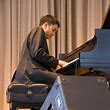
´There are no horns or guitars on Vijay Iyer’s Uneasy.´, he says of his second piece of submitted evidence, ´just the elemental triangle of the jazz piano trio. Iyer, a South Asian-American keyboardist, is joined by Linda May Han Oh, a Chinese-Australian bassist, and Tyshawn Sorey, an African-American drummer. These demographics demonstrate how this African-American music has spread across the globe into every community, drawing from influences far beyond New Orleans and Chicago to reinvigorate itself.
shown right, Iyer wrote or co-wrote eight of the 10 pieces, but Oh and Sorey, both composers and bandleaders themselves, are among the most melodic musicians on their instruments and allow this session to become a true collaboration of equals. The bass and drums are boosted in the mix, allowing us to hear how the higher-pitched bass strings, the toms and cymbals restate the theme and chord changes. They not only respond to Iyer’s ideas, but also force him to respond to theirs.
The result is a genuine give-and-take, a three-way conversation that’s exciting to eavesdrop on. The album’s title is a clue to the music’s unsettling tensions: harmonic progressions that never resolve as expected, minor keys that bump up against major keys, grooves that get tied into new knots before we can relax into them. The music isn’t angry or grating, but nor is it comfortable or reassuring. It’s “uneasy,” as the title suggests, and that keeps the listener on the edge of their seat, anxious to hear what’s going to happen next. That kind of suspense makes for the best storytelling.
You can hear this most clearly on the nine-minute title track. Iyer’s opening theme seems to promise a satisfying tune, but it moves in intervals that continually undershoot or overshoot the expected note, knocking us off balance. We think we know where the melody is going now, but again we’re surprised by the note choices. Soon Oh and Sorey are playing the same game, leading us on and tripping us up´.
Item three on the evidence pack Geoffrey Himes supplies to jurors is from other worlds.
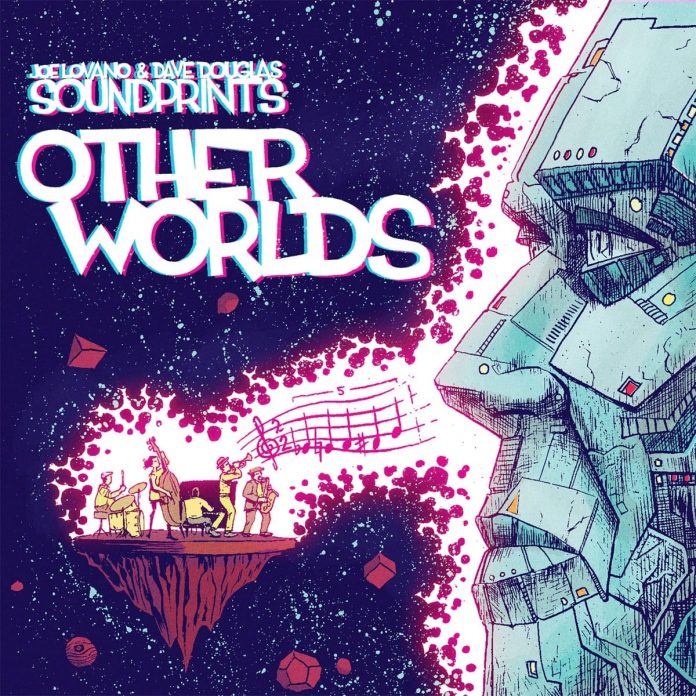
´Oh is also the bassist on Joe Lovano & Dave Douglas’s Soundprints’ Other Worlds´, he tells the jury. ´This is a quintet session that includes pianist Lawrence Fields and drummer Joey Baron. Lovano and Baron have often recorded with Frisell and have a similar song-centric approach to jazz improvisation. The album’s title and cover illustration (of a giant, turquoise robot stomping his way across Mars) suggest a sci-fi concept for the record. The band, however, eschews synths and other space-age sound effects and tries to suggest interplanetary travel with traditional acoustic instruments.
That they succeed is due to the rhythm section’s ability to deliver momentum that is more aerial than terrestrial. The music keeps moving forward with force, but there always seems to be air underneath—as if the music were able to glide until it needed another shot of propulsion. This is the influence of Lovano’s longtime collaborator, the late drummer Paul Motian, the grandmaster of rhythmic implication.
This openness in the sound evokes the empty expanses of space, where the solitude can prompt internal exploration as well as external. The arrangements often break the quintet into an unaccompanied duo or trio for more intimate dialogues. When the full roster reconvenes, the ideas from those private conversations are fleshed out into a collective consensus.
I don´t share the same level of awareness of the jazz scene as Mr Himes, but I suspect that my three more-learned-than-I colleagues in Joined Up Jazz Journalists (JUJJ) will already be nodding their heads wisely and trying to convince their fellow jurors that the case for the defence was well argued and is certainly NOT GUILTY of being stuck in the past.
Just as I was about to press publish on this article I received a press release about an album on which we have already spoken in glowing terms on these pages. Although it includes songs from earlier eras and even genres it is certainly not stuck in the past but is in fact a sparkling present.
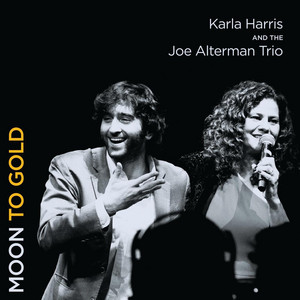
November 13, 2022 For immediate release
PRESS RELEASE
Two of Atlanta’s Leading Jazz Musicians Collaborate on New
Recording Just Released
Following two strong tours in 2022 with enthusiastic audiences throughout, vocalist Karla Harris and pianist Joe Alterman have collaborated to record Moon to Gold, a fan-requested collection of jazz standards featuring the musicians’ signature swinging, soulful sound.
The project, recorded with Alterman’s trio including bassist Kevin Smith and drummer Justin Chesarek, spotlights four studio tracks plus five tracks from a live performance, including two crowd favorites: a hauntingly exotic version of NatureBoy and a stirring, uninhibited take on Bridge Over Troubled Water.
Just released, Moon to Gold is already receiving accolades from writers in the United States and the United Kingdom, with UK music blogger Norman Warwick stating on Sidetracks And Detours that
“There is vocal and musical intelligence here. On this superb album…the singer and musicians serve new wine and explode old bottles; it is all mischievously irreverent whilst remaining always respectul to the roots of the music. On this superb album … the singer and musicians serve new wine and explode old bottles.
Individually, the two artists are forging accomplished careers, each having produced´albums in recent years that have charted on JazzWeek.
Harris, with four albums to date, has recorded with some of the jazz genre’s biggest names. Alterman has sixalbums to his credit, and has been called one of the hottest young pianists on the
jazz scene by greats who have also personally mentored him, including Les McCann, Monty Alexander and the late Ramsey Lewis.
Alterman’s trio and Harris enjoy performing together, displaying a mutual straight-ahead sense of joy in the music that has been captured on Moon to Gold.
Writes noted jazz journalist Scott Yanow, “Moon to Gold displays Karla Harris’ powerful yetversatile voice and Joe Alterman’s inventive piano in top form. It certainly makes one
want to see their quartet perform live.”
For more information contact John at teamharris4@msn.com, 314-496-2983.
HD photos available request.
https://joealterman.bandcamp.com/album/moon-to-gold

The prime source for this article was written by Geoffrey Himes for Paste on line magazine.
In our occasional re-postings Sidetracks And Detours are confident that we are not only sharing with our readers excellent articles written by experts but that we are also pointing to informed and informative sites readers will re-visit time and again. Of course, we feel sure our readers will also return to our daily not-for-profit blog knowing that we seek to provide core original material whilst sometimes spotlighting the best pieces from elsewhere, as we engage with new genres and practitioners along all the sidetracks & detours we take.
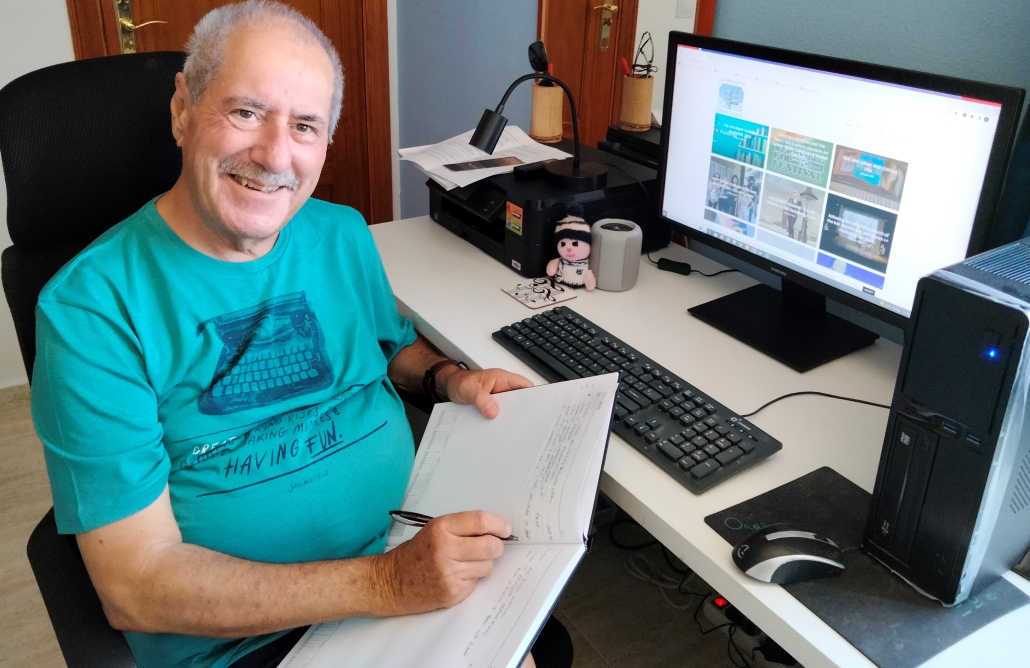
This article was collated by Norman Warwick, a weekly columnist with Lanzarote Information and owner and editor of this daily blog at Sidetracks And Detours.
Norman has also been a long serving broadcaster, co-presenting the weekly all across the arts programme on Crescent Community Radio for many years with Steve Bewick, and his own show on Sherwood Community Radio. He has been a regular guest on BBC Radio Manchester, BBC Radio Lancashire, BBC Radio Merseyside and BBC Radio Four.
As a published author and poet Norman was a founder member of Lendanear Music, with Colin Lever and Just Poets with Pam McKee, Touchstones Creative Writing Group (for which he was creative writing facilitator for a number of years) with Val Chadwick and all across the arts with Robin Parker.
From Monday to Friday, you will find a daily post here at Sidetracks And Detours and, should you be looking for good reading, over the weekend you can visit our massive but easy to navigate archives of over 500 articles.

The purpose of this daily not-for-profit blog is to deliver news, previews, interviews and reviews from all across the arts to die-hard fans and non- traditional audiences around the world. We are therefore always delighted to receive your own articles here at Sidetracks And Detours. So if you have a favourite artist, event, or venue that you would like to tell us more about just drop a Word document attachment to me at normanwarwick55@gmail.com with a couple of appropriate photographs in a zip folder if you wish. Being a not-for-profit organisation we unfortunately cannot pay you but we will always fully attribute any pieces we publish. You therefore might also. like to include a brief autobiography and photograph of yourself in your submission.
We look forward to hearing from you.
Sidetracks And Detours is seeking to join the synergy of organisations that support the arts of whatever genre. We are therefore grateful to all those share information to reach as wide and diverse an audience as possible.
correspondents Michael Higgins
Steve Bewick
Gary Heywood Everett
Steve Cooke
Susana Fondon
Graham Marshall
Peter Pearson
Catherine Smith
Aj The Dj Hendry
Hot Biscuits Jazz Radio www.fc-radio.co.uk
AllMusic https://www.allmusic.com
feedspot https://www.feedspot.com/?_src=folder
Jazz In Reading https://www.jazzinreading.com
Jazziz https://www.jazziz.com
Ribble Valley Jazz & Blues https://rvjazzandblues.co.uk
Rob Adams Music That´s Going Places
Lanzarote Information https://lanzaroteinformation.co.uk
all across the arts www.allacrossthearts.co.uk
Rochdale Music Society rochdalemusicsociety.org
Lendanear www.lendanearmusic
Agenda Cultura Lanzarote
Larry Yaskiel – writer
The Lanzarote Art Gallery https://lanzaroteartgallery.com
Goodreads https://www.goodreads.
groundup music HOME | GroundUP Music
Maverick https://maverick-country.com
Joni Mitchell newsletter
passenger newsletter
paste mail ins
sheku kanneh mason newsletter
songfacts en.wikipedia.org/wiki/SongFacts




Leave a Reply
Want to join the discussion?Feel free to contribute!